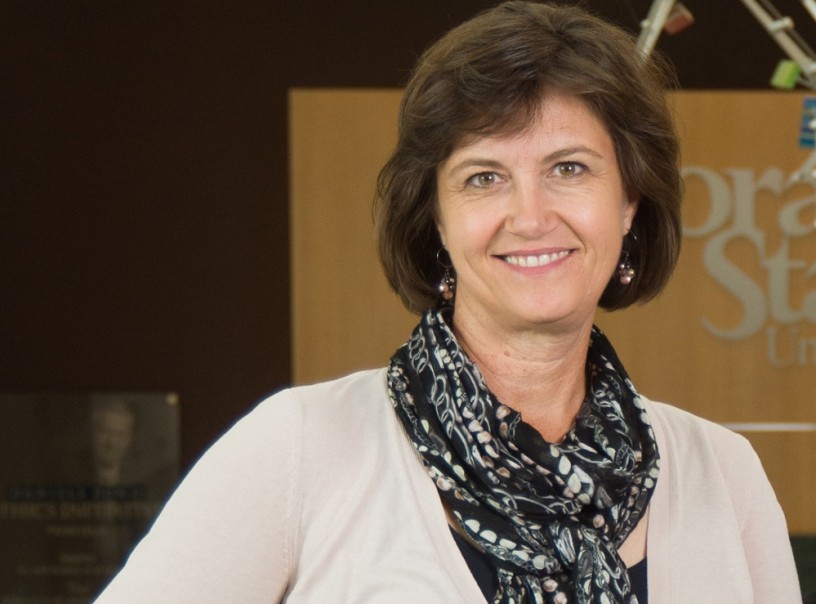In the spotlight:
Name: Dawn R. DeTienne
Location: Fort Collins, CO, USA
Occupation: Professor of Entrepreneurship, Colorado State University
You are an influential individual within the entrepreneurship/enterprise education space. What does ‘entrepreneurship education’ mean to you, and why do you think it’s important?
Entrepreneurs have been around since people have, but entrepreneurship education got its start in the 1940s. Everyone can share stories of entrepreneurs who did not have access to education and through Herculean efforts created amazing companies. However, I believe that engaging in education (or practice) allows individuals to learn skills much in the same way they learn accounting, painting, or engineering. Education allows entrepreneurs to learn, practice, make mistakes, network, and develop tools all in a relatively low-cost environment.
How did you first become involved with entrepreneurship education?
I was an entrepreneur for 16 years before returning to the university and getting a PhD. I taught my first entrepreneurship course in 2002 and have been teaching and owning my ventures ever since.
Can entrepreneurship be included at all stages of education, and within every subject? If yes, how? If no, why not?
Yes of course. While some areas of study appear to be more conducive to entrepreneurship, all students can benefit from understanding the entrepreneurial mindset and the tools associated with it. The workplace (or the way in which we work today) is changing. Not only do students need to be able to act entrepreneurially in large established organisations, many students will work for small and start-up businesses. In addition, there is a movement toward independent work, which allows the work environment to be more flexible, but requires an understanding of entrepreneurship in order to be successful.
For students who don’t want to be entrepreneurs, what other benefits does enterprise education provide?
Large organisations are looking for employees who are able to act entrepreneurially and think creatively to solve big problems.
Your work has explored the role of gender in enterprise and entrepreneurship. How much progress has been made – and what still needs to be done to support female entrepreneurs?
There is so much! In a recent article Rachida Justo, Philipp Sieger, and I examined the “female underperformance hypotheses”—which proposes that females underperform in entrepreneurial activity. Research has shown that women fail more often than men, but we argue that this has to do with how we measure failure. Previous research has considered any exit from entrepreneurship a failure, but certainly people exit for very positive reasons including acquisition, family, other desires, etc. Our work demonstrates that women are not more likely to fail. They are simply more likely to exit, thus likely significantly overstating female failure rates. So many other great streams of research examine gender topics and this research is critical not only for entrepreneurs, but also for investors and policy makers.
You’ve had a great deal of success throughout your distinguished career, and have won many awards (such as the Colorado State University College of Business Researcher of the Year in 2009, and – in 2011 – the Colorado State University Excellence in Teaching Award). Can you share a few of your most significant moments or personal achievements with us?
My teaching honours have included: in 2008, Accenture Outstanding Achievement in Teaching Award, Colorado State University; in 2010, Most Influential Faculty Member, Ram Scholar-Athlete Brunch; in 2011, College of Business Excellence in Teaching Award, Colorado State University; and from 2011-2014, I served as the Associate Editor for The Academy of Management Learning & Education Journal, which is the leading journal on Entrepreneurship Education.
One of the awards I received in 2016 – from the Academy of Management Entrepreneurship Division – was the Entrepreneurship Practice Award. The award honours a publication that has been especially effective at advancing the practice of entrepreneurship (2012. Impact of founder experience on exit intentions. Small Business Economics, 38(4): 351-374). This was pretty exciting because it means that my work matters to the practice of entrepreneurship. However, the most significant moments are when my students or students I mentor send me a message after they’ve left and tell me how well they are doing or how well their venture is going. Pretty cool!
You co-founded several ventures that you successfully guided through an acquisition exit. How have your experiences of working in the business sector influenced your teaching?
Certainly. While I remind students that my experiences are only an N of 1 (or 2 or 3), I am able to empathise with them as they dive into this unpredictable world of entrepreneurship. Unlike many subjects, there is no one single answer in entrepreneurship, so the goal is to train our minds to look for opportunities, use existing tools and resources to help us make decisions, and practice, practice, practice.
What does a typical day look like in the world of Dawn DeTienne?
In an average week I might teach for five hours a week, prepare for class, meet with students and grade students’ work for 10-12 hours a week, work on my research for 10 hours, answer emails/requests/attend meetings for 15 hours per week, and provide service to my college and international organisations for five hours per week.
And finally, Dawn, tell us: if you were an animal, what would you be and why?
Hmm… a cow, I guess. I think I would like to take a breath and just “be” for a while rather than always “doing”. Plus, I love to eat.





Leave a Reply